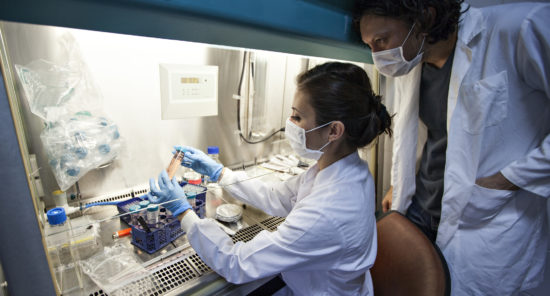According to recent report, colonoid monolayers exhibited “a distinct colonic epithelial gene expression, potentially reflecting the disease pathology,” when interacting with fecal supernatant samples from patients with irritable bowel syndrome (IBS) with predominant diarrhea.
The study, published in Neurogastroenterology and Motility, stimulated colonoid monolayers from healthy subjects with fecal supernatant samples from patients with IBS with predominant diarrhea, phosphate-buffered saline (PBS), or lipopolysaccharide (LPS).
Initially, the authors explained that “colonoid monolayers stimulated with fecal supernatants from healthy subjects (n = 7), PBS (n = 4), or LPS (n = 3) presented distinct gene expression profiles, with some overlap (R2 Y = 0.70; Q2 = 0.43).”
The authors then described that “addition of fecal supernatants from healthy subjects and IBS patients (n = 9) gave rise to different gene expression profiles of the colonoid monolayers (R2 Y = 0.79; Q2 = 0.64).”
In total, the expressions of 22 genes related to immune response (CD1D, TLR5) and barrier integrity (CLDN15, DSC2) were differentiated between healthy subject and IBS samples. Additionally, fecal microbiota and metabolite profiles differed between the groups, while LPS content did not, the authors noted.
In closing, the authors suggested that their approach using colonoid cultures from healthy subjects and fecal supernatants from patients with IPS “may facilitate the exploration of IBS related intestinal micro-environmental and barrier interactions.”
Source: https://onlinelibrary.wiley.com/doi/10.1111/nmo.14390








